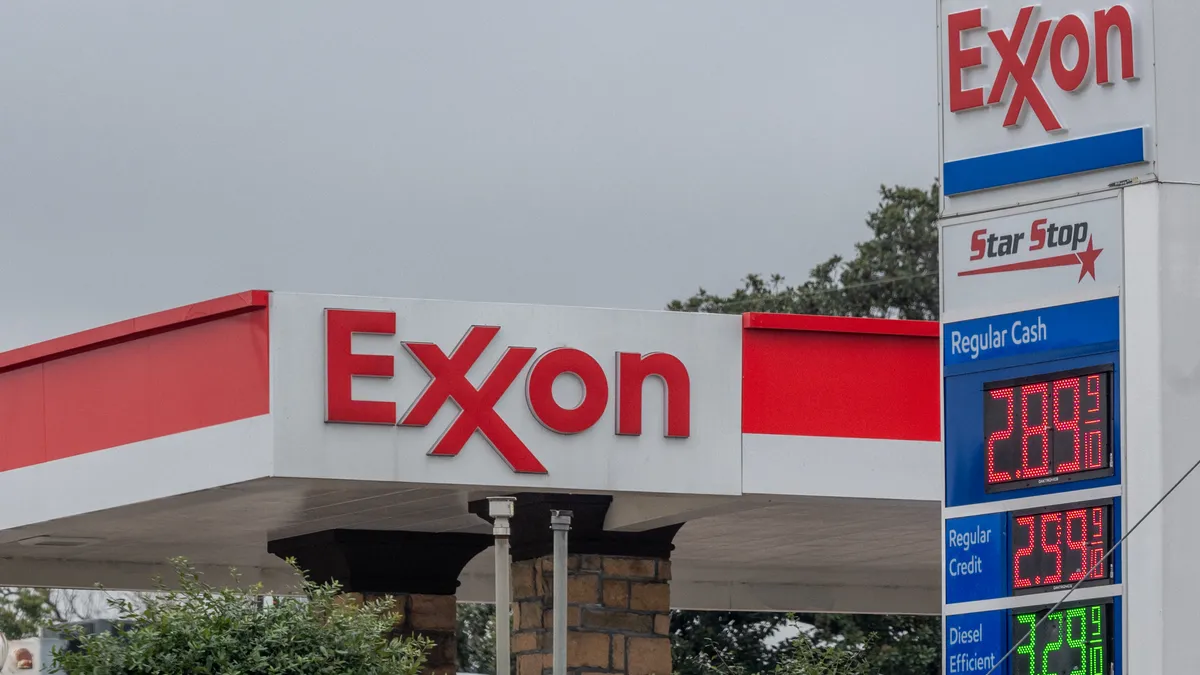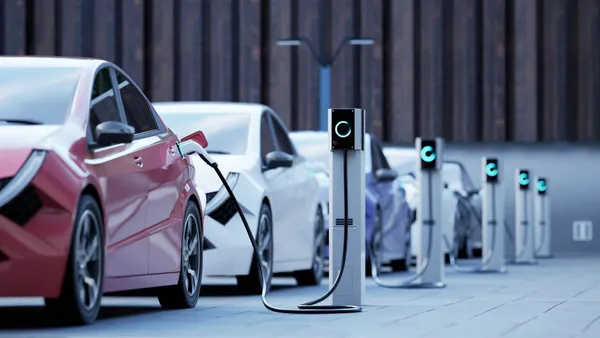Dive Brief:
- ExxonMobil sued California last week over the state’s two climate disclosure laws, alleging they infringe upon the oil major’s free speech rights.
- The lawsuit, filed Oct. 24 in the U.S. District Court for the Eastern District of California, claims that Senate Bills 253 and 261 — laws that require climate-related transparency from large companies operating in the state — “trumpet California’s message” which, according to Exxon, is that large corporations are “uniquely responsible for climate change.” The oil company said it believes this messaging to be “misleading and misguided” and that both laws violate the First Amendment.
- Exxon’s suit asked the court to block California from implementing the rules and alleged the disclosures would force the company to adopt a flawed reporting framework that it disagrees with. The company believes the framework misrepresents Exxon’s role in driving climate change.
Dive Insight:
Though Exxon said it acknowledges the “very real risks associated with climate change” and has continued to support efforts and actions that seek to address those risks, the company opposes the framework laid out under both rules, according to the lawsuit.
Exxon said in the suit that, under California’s climate laws, the oil major will be “forced to describe its emissions and climate-related risks in terms the company fundamentally disagrees with, using frameworks that place disproportionate blame on large companies like ExxonMobil for being large, for the avowed purpose of spurring public opprobrium and policy responses.”
Exxon argued it does not currently have any crude oil or natural gas exploration, production, manufacturing, transport or refining operations in California. Most of its main business operations occur outside the state, according to the suit.
SB 253, or the Climate Corporate Data Accountability Act, and SB 261, or the Climate-related Financial Risk Act, were signed into law in October 2023 by California Gov. Gavin Newsom. SB 253 requires business entities operating in California with annual revenues exceeding $1 billion to annually report their greenhouse emissions. Meanwhile, SB 261 requires business entities with revenues exceeding $500 million to publicly disclose their climate-related financial risks and countermeasures.
Entities covered by SB 253 are expected to publicly disclose their scope 1 and 2 emissions to a reporting organization by June 30, 2026, and scope 3 emissions beginning 2027. Entities covered by SB 261 are expected to submit their reports on climate related risks by Jan. 1, 2026.
Last month, the California Air Resources Board, the agency tasked with enforcing the state’s climate disclosure rules, issued a preliminary list of entities that may be subject to upcoming reporting requirements under either or both SB 253 and 261. The initial list named over 3,100 companies expected to be subject to the state’s climate disclosure laws and included ExxonMobil.
However, the agency said the list may be incomplete and reiterated that potentially covered entities are responsible for complying with both climate laws, even if they are not mentioned in the preliminary list.
Earlier this month, CARB announced it was delaying initial rulemaking for both bills to the first quarter of 2026. The final regulations were previously slated to be issued Oct. 14, according to a schedule CARB provided during an August public workshop. The agency said the delay was due to the “large volume of public comments” its staff received following the workshop and the “ongoing input related to identifying the range of covered entities.”
However, CARB did not disclose any changes to when entities are expected to comply with the climate disclosure rules and has previously reiterated that the 2026 reporting deadlines are here to stay. The agency said it would not take enforcement action during the first year of reporting and is looking for companies to make a “good faith effort” in a notice published last year.
Exxon’s efforts to thwart California’s climate laws came shortly after the rules survived a preliminary injunction request put forward by the U.S. Chamber of Commerce and other pro-business groups. The plaintiffs similarly argued that the laws are in violation of the First Amendment for compelling speech.
A federal judge denied the preliminary injunction request on Aug. 13, ruling that though the plaintiffs alleged “they will be irreparably harmed by [the disclosures] because the laws compel speech in violation of the First Amendment,” they failed to demonstrate how the laws infringed the First Amendment.











